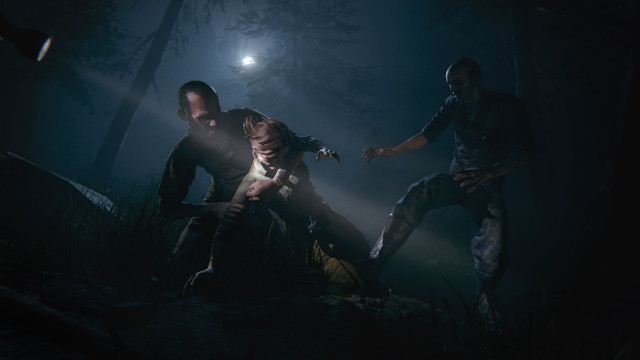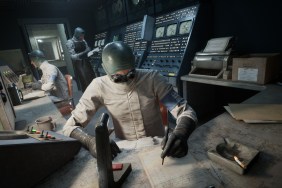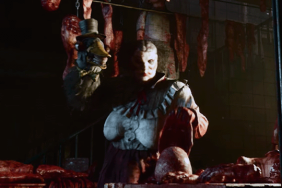People don't like to die in video games. I get it. You put all that effort into getting past that bad guy, beating that boss, or finding that item and BAM! Whether by surprise or not, you get killed by someone or something, or die to some obstacle, and you get that immersion-breaking menu screen that invites you to reload your last checkpoint. It flat-out sucks.
But how we, as gamers, deal with and react to this problem has grown more and more misguided, at least as far as the loudest voices are concerned. Just like death is a part of life, it's also a part of video games, especially horror games, and someday we're going to have to face that reality, virtual or otherwise.
Why do I bring this up now? Because it's a week after the release of Outlast 2, and these all-too familiar complaints are popping up once more. Of course, there are plenty of complaints about Outlast 2 that don't hold much water. "The story is too vague!" (It isn't). "They don't signpost well enough!" (They do). But nothing takes the cake quite as well as "I shouldn't be dying so much! This game is trial-and-error!"
This shouldn't be read as an assault on any one player's or one reviewer's viewpoint – too many people have made this argument to have this article be a response to any one in particular – but rather an affront to the sentiment as a whole. This complaint is something I called a "misguided crutch" in my review of Outlast 2. It's a way to deflect blame: "It's not my fault I died; it's the game's fault. It's the developer's fault." People use it the same way they use ELO matchmaking systems as a way to excuse skill stagnation – the idea that the only thing standing between them and Top 500 designation is a so-called "forced 50-50" system, which, of course, doesn't exist.
Finding a Scapegoat
And it's not new. People have been complaining about dying in horror games for years, pretty much ever since the popularization of the first-person-perspective horror game. I most remember this complaint with Alien: Isolation. The Xenomorph antagonist in that game was something of a revelation for artificial intelligence. It didn't follow any particular path, instead reacting to noises, smells, and what seemed to be at times genuine intuition. It was a truly intelligent enemy that you had to either sneak around, distract, or ward off.
But again, when people died in that game, they still found a scapegoat to blame for their struggles: the save system. Alien: Isolation used traditional save points, and when you died, you'd go back to the last time you saved. That's the framework of the game, and the rules by which you had to play. But when players died, instead of asking themselves how they could improve or what other methods they could use to avoid dying, they said "this save point system is flawed!" This, of course, overlooked the fact that, if you played through the entire game without dying, you would never have a problem with the save point system.
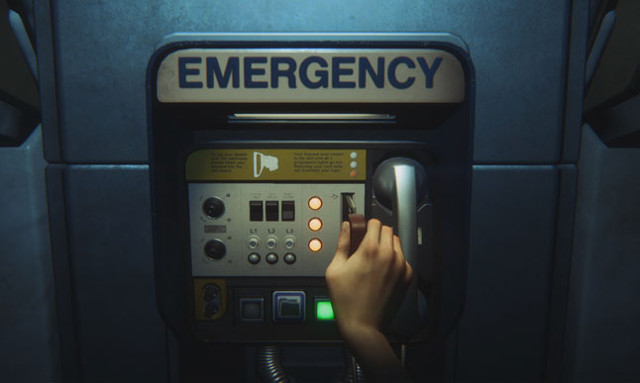
In Alien: Isolation, I have the "Survivor" achievement for completing the game on its hardest difficulty, something less than 6% of players have done on PC, and I did it on my first try. And, trust me, this isn't because I'm some sort of Gosu gamer who never dies and spits on the normie peons. I died a lot. As such, I don't have the achievements for getting through certain areas without dying. It's simply because I was patient and knowing enough to realize that it was my own fault I died, and the game was perfectly justified in sending me back to my last save point, because I knew it would if I died, yet I died anyway.
There is a statistical lack of patience shown in a lot of these horror games, even on normal difficulties. In Outlast 2 on Steam, less than 17% of players have got the achievement for beating the game. One comment I found on a review perfectly encapsulated why this might be: "In Outlast 2, after the 5th or 6th time i got killed, i just stopped caring, and it was just super annoying. Never finished that game. I can waste my time with more enjoyable things." This has everything rolled into one: dying isn't fun, and dying is the game's fault – not the gamer's.
Don't Let Them Fight
Suggestions on how to fix this get even more ridiculous. I saw one review suggest that Outlast 2, which doesn't let you fight, should at least let you pick up and hold a weapon, and then the developers could show your being overpowered by the enemies, who are more numerous and better with said weapons. Overlooking the fact that this would clearly be a superfluous mechanic that developer Red Barrels was perfectly justified in not including, games have tried this before.
You might remember a game called Penumbra: Overture, a first-person, survival-horror title with physics puzzle-based gameplay. The enemies in that game were very strong, from ravenous dogs to numerous spiders. Penumbra technically allowed you to try to fight, giving you a flimsy pickaxe and a mechanic that let you click and drag your weapon in large swipes across the screen, and this was clearly intended to show you that combat is not the way around these guys. You need to sneak and use the core gameplay mechanic (physics puzzles) to escape.
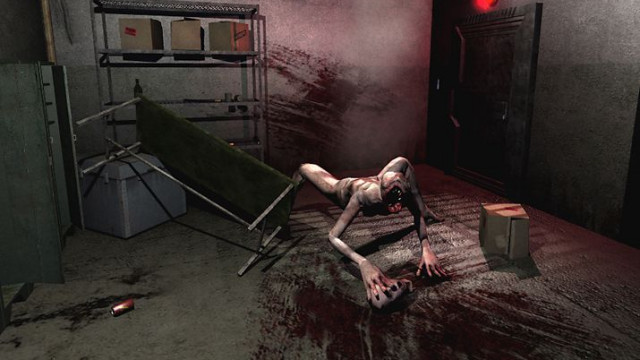
Frictional Games would heavily de-emphasize combat in Penumbra: Black Plague, and remove enemies entirely in Penumbra: Requim. So, in Frictional Games' long-awaited spiritual successor, the critically acclaimed Amnesia: The Dark Descent, they simply cut out the middle-man. Instead of fruitlessly trying to fight your enemies, they just made it so you couldn't fight them at all, thus emphasizing their core gameplay mechanic.
None of this is to say that horror games are necessarily better without the use of weapons. The format appeals to me, yes, as I feel threats are more threatening when they actually pose a threat (silly me), but combat-based horror can work. For instance, I love Condemned: Criminal Origins. It has visceral melee combat that makes me feel like I'm someone who isn't very experienced going up against mad men, and it's wildly effective at creating a horrific environment. It's also assuredly a go-to piece of ammunition for people who ask the question: "why doesn't Outlast 2 let me fight?" Fair question, sure. But what about the opposite? That is to say, why doesn't Condemned: Criminal Origins give me the option to hide?
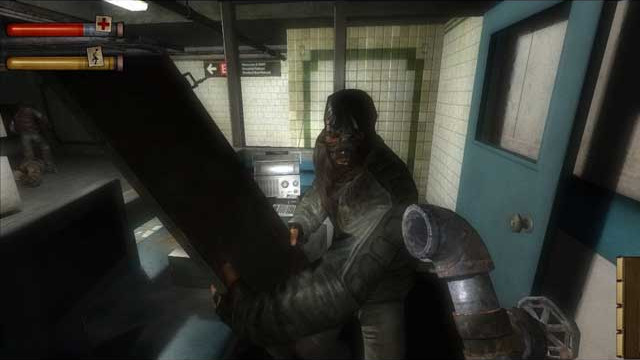
The answer to both of these questions is obvious: that's the way they were designed. They're different games with different core mechanics. Condemned puts the emphasis on fighting your way through enemies (despite some scripted hiding sequences); Outlast 2 has you run and hide from them. Neither of them is right or wrong. They're just different. And sure, one style might work better for you, personally, than the other, but now we're beyond a discussion of a bad system vs a good one, just a preferred system vs not-preferred.
If At First You Don't Succeed
I also understand that maybe it's not the mere fact that you die, but, rather how you die, that has rustled the jimmies of so many writers and gamers. Indeed, I lodged a similar complaint about Nier: Automata in my review. It wasn't the fact that I was dying on harder difficulties, it was that they harder difficulties were poorly designed, only increasing the damage and health of enemies.
The main complaint about how you die in Outlast 2 is that it's "trial-and-error." I vehemently disagree with this statement, because Red Barrels knowingly lit up the correct paths to go in its game, but let's assume this is correct. Let's say Outlast 2 is trial-and-error, and that's the only reason why you die. Even if it that is true, when did that become a bad thing? Surely, you remember another trial-and-error based horror game that went by the name of Limbo. In Limbo, you could die from stepping on the wrong button, and the only way you would know it was the wrong button is if you stepped on it. How was Limbo received? Only an 88 on Metacritic, in addition to becoming one of the most famous and beloved indie games of all time.
Not only are these complaints not new, but they're also applied inconsistently. In the case of Limbo vs Outlast 2, the only difference seems to be that people died more in the Outlast 2, which exposes the core of this complaint: it's not how you died in Outlast 2, since Limbo had the same method of dying, it's that you died more, which boils down to that you died at all.
Conclusion
People just don't like to die in video games, and, make no mistake, that's what these complaints come down to. Whether or not you should be able to hold a weapon, or whether or not the game lets you save often enough, these are all just smokescreens to deflect blame, and they're more a rejection of the core gameplay of horror games. It's an oldie, but a goodie: if you can't take the heat, get out of the kitchen.
